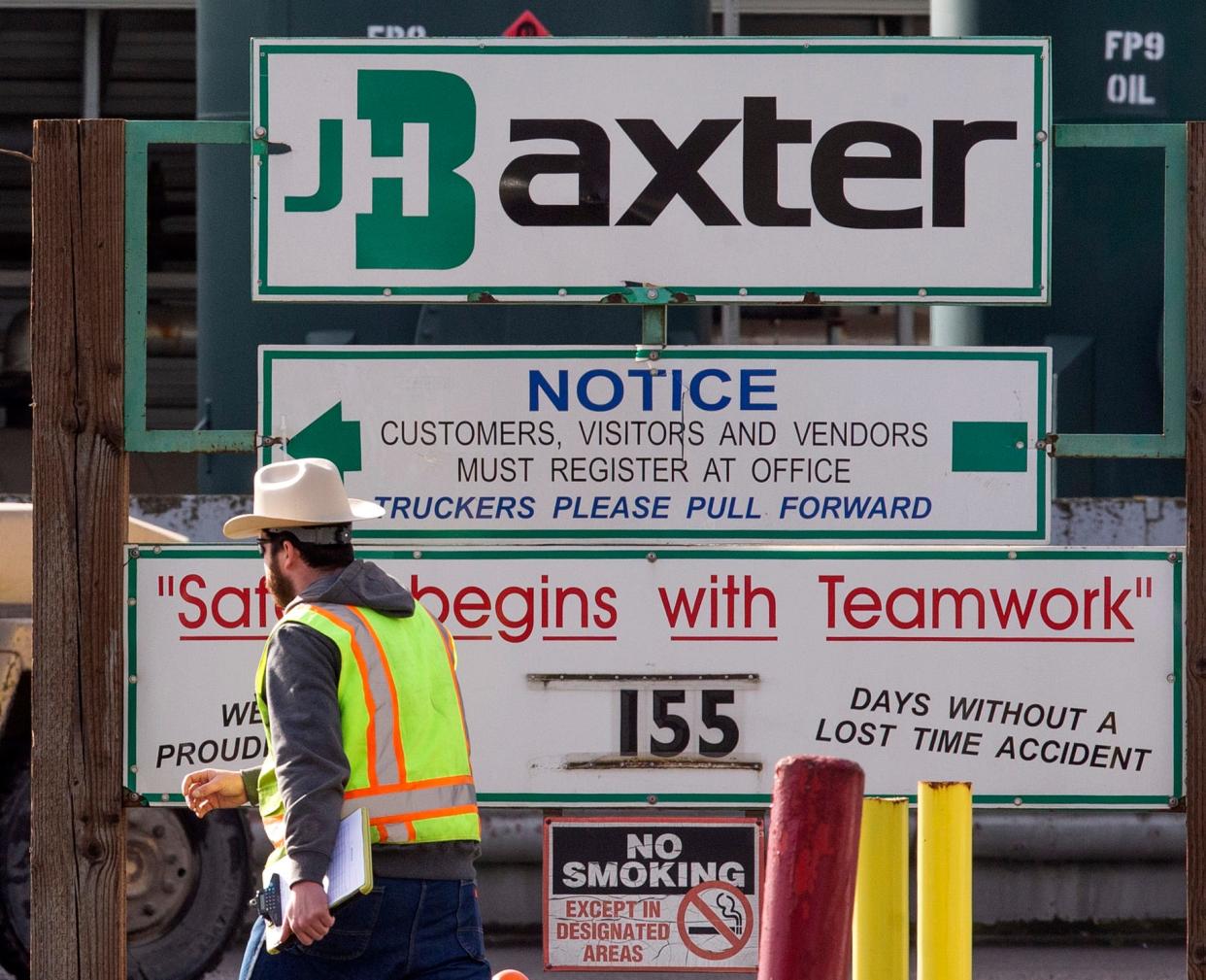Opinion: Eugene can prevent toxic fiascoes like J.H. Baxter's from happening again

When J.H. Baxter shut down in January, the community heralded a new era of cleaner air and more livable neighborhoods. This creosote chemical company polluted nearby communities for seven decades. The day after the plant ceased operations, neighbors could suddenly take in a breath of air without coughing, getting a headache or feeling nauseous.
Like the black, tarry stain of creosote, J.H. Baxter continues to leave its foul mark on its Bethel neighbors. Shielding itself from the consequences of toxic chemical trespass is the company’s signature legacy. J.H. Baxter takes advantage of our community in three major ways.
Pollute. First, J.H. Baxter exposed residents to air polluted with a cocktail of naphthalene, ammonia, methanol, acetaldehyde and a much longer list of hazardous chemicals. At the same time, the factory contaminated groundwater with pentachlorophenol (a carcinogen) and soil with dioxin (a carcinogen). State and federal agencies are attempting to get a handle on what it will take to clean-up the widespread polluted mess.
Dispute. Secondly, J.H. Baxter violated environmental protection laws. Regulators knew the company was a repeat, intentional polluter as far back as 2012. Sadly, nothing changed. As environmental violations mounted and grew in severity, J.H. Baxter employed the corporate tactic of dispute-and-delay to dissuade agencies from holding them to account. It has played this card before — the company is responsible for at least one Superfund site in California. Like a white-collar crime thriller, these deceits enabled J.H. Baxter to walk away from their pollution, time after time.
Scoot. Finally, when faced with the evidence it had caused dioxin contamination in residential properties, J.H. Baxter forced regulatory agencies to go to court, buying time and forcing our state agencies to spend public money. For example, J.H. Baxter employed this tactic when it was fined $305,440 for egregious violations of hazardous waste and water quality laws since 2015. It used the courts to dispute evidence of violations and to protest civil fines. After dragging out the litigation for nearly a year, on July 14, J.H. Baxter signed a formal settlement agreement requiring it to immediately pay the full $305,440 and “resolve” the enforcement actions by the DEQ.
Ignoring its commitment, J.H. Baxter chose the evasive “scoot” maneuver, continuing its historical pattern of violating the community’s trust, signing documents in bad faith and skirting Oregon laws. The company now refuses to pay its $305,440 debt! After two months of stalling, it appearsthe company has no intention of paying the fine despite signing the legal settlement. What is the excuse? Company CEO Georgia Baxter claims that years of corporate profits simply vanished. J.H. Baxter also refuses help pay for the dioxin cleanup of residential yards that are now contaminated from years of environmental violations.
Thankfully, the Oregon Department of Justice is investigating how the state can recoup the money owed in civil penalties and the millions of dollars being spent on cleaning up the poisonous dioxin, both on the polluter’s property and in the yards of Bethel residents. However, Oregon’s weak corporate accountability laws makes this difficult.
J. H. Baxter has figured out it can pollute, dispute and scoot — with impunity.
Eugene can take steps to prevent a similar toxic fiasco from happening again.We can demand polluter accountability. Together, Eugene elected officials and residents must mandate strong requirements to end chronic polluter malfeasance. Our Legislature must give our regulatory agencies more tools to rein in chronic polluters.
Our city councilors and state legislators need to hear directly from you that we need solutions that will end the dodgy cycle of pollute, dispute and scoot.
In the news: One month after J.H. Baxter agrees to pay DEQ debts, no signs of payment on the way
Bethel neighbors have suffered long enough from industrial pollution. Let’s not repeat the mistakes of the past when homes and industrial parcels were placed on adjacent land and families were expected to endure the fumes, loud noises and vibrations, polluted water and blight.
We can do more to address this neighborhood’s higher levels of asthma and cancer. We can replace the bad with the good. Rather than assume the J.H. Baxter property will get sold to another polluting industry, we can advocate for something beneficial. Why not cover the property with an asphalt cap and put in a community solar project or an emergency preparedness infrastructure project? Bethel residents deserve something innovative, not more decades of pollution.
Lisa Arkin is the executive director of Beyond Toxics.
This article originally appeared on Register-Guard: How Eugene can prevent toxic fiascoes like J.H. Baxter's from happening again

